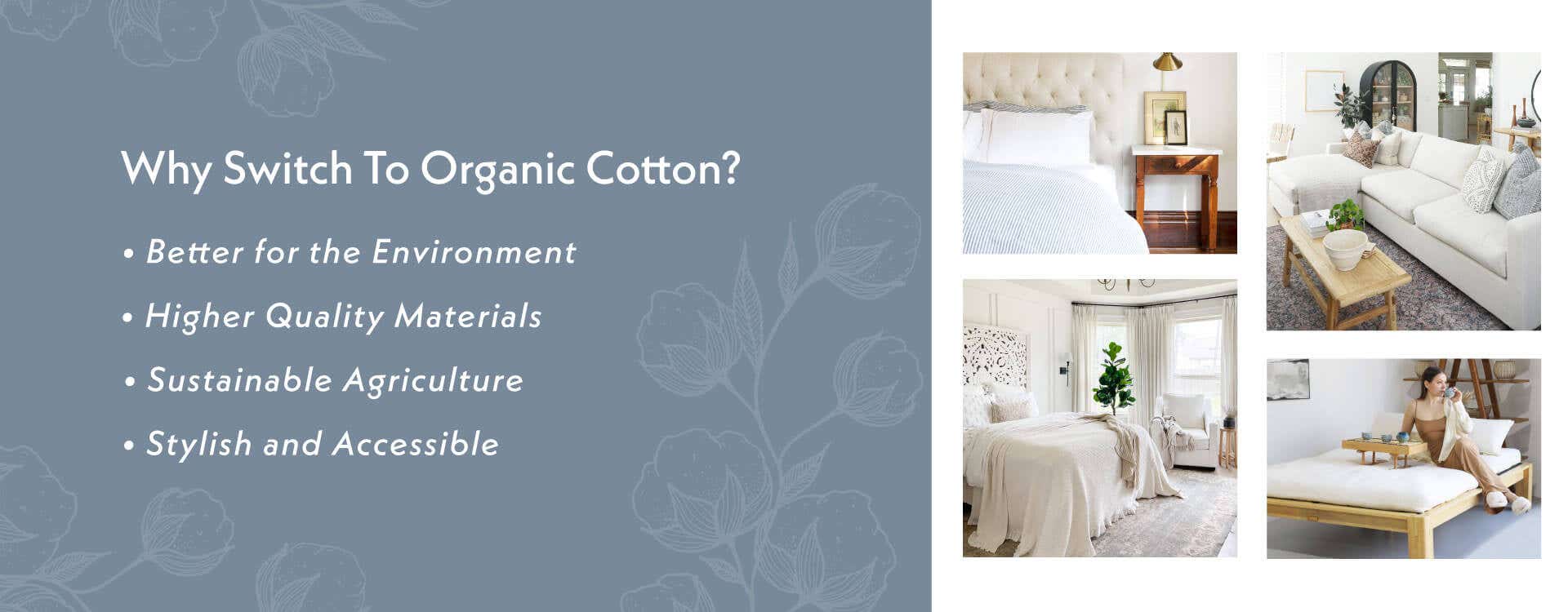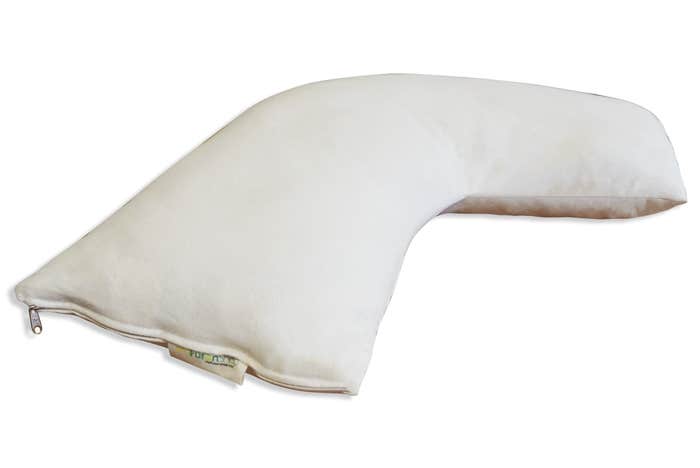Organic Cotton Side Sleeper Pillow - Side Sleeper
All Natural Side Sleeper Pillow
This uniquely shaped pillow was designed specifically for side sleepers. This side sleeper bed pillow comes with an Organic Cotton Cover. Filled with USDA Certified Organic Cotton.Key product ingredients:
Organic Cotton Side Sleeper Pillow- Designed for Relief of Neck and Shoulder Tension
- Fully Adjustable for Customized Comfort
- 27" x 11" x 5.5"
- Covered with 7oz Organic Cotton Zippered Pillow Protector
- Made in the USA
- USDA Certified Organic Cotton.
- Grown in the United States (saves transportation costs while using less petroleum and helping the US economy)
Organic Cotton Side Sleeper Pillow |


Healthier For Your Home

Healthier For The Planet

Healthier For Agriculture

Healthier For Your Family

Healthier For Your Sleep

Healthier For Your Pet

Review
Frequently Asked Questions
The word FUTON is a Japanese word originally referring to any round mat our cushion filled with leaves. The traditional Japanese Futon is a group of three products making up a bed. The three products consist of a futon, which is a thin cotton pad, a shikibuton which is a three folding pad that sits under the thin cotton pad, and a Kakibuton which is a comforter that goes on top of the thin cotton pad. Learn more about What is a Futon?.
Throw Pillows are decorative pillows that accent a couch, arm chair, and other furniture pieces in your home. It can bring life to a room, make a statement, and even complete the look that exemplifies your personality in your home design. When choosing organic throw pillows, there is somewhat a science on the size, the position of placement, color, and texture to choose for your home. Learn more about How To Choose The Perfect Throw Pillows?
We handcraft Americas largest selection of Futon Slip Covers including, Outdoor Weather and Sun Proof Futon Slip Covers,Organic Cotton Futon Covers, Microfiber Suede and Textures Futon Covers, Modern Printed and Woven Slip Covers, Floral or Geometric Futon Slip Covers or Cotton Linen Blended Futon Covers handmade in our fabric studio in the heart of San Francisco. There are hundreds of fabric and color options available for you to customize and update the look of your futon natural furniture. Learn more about Color Ideas For Your Futon Covers And Matching Pillows.
Fabrics can be divided into two main categories
Natural fabrics: Linen, Leather, Cotton, Wool, Silk
Synthetic fabrics: Acetate, Acrylic, Nylon, Olefin, Polyester, Rayon, Vinyl
Learn more about What's The Difference Between Natural Cotton And Synthetic Cotton?
Natural Bed pillows ,Organic throw pillows, travel pillows, and custom pillows come in a variety of sizes. Click To See The Futon Shop’s Guide To Pillow Sizes.



